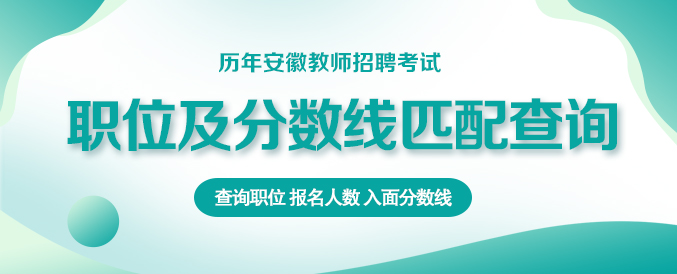安徽教师招考网同步安徽教师招聘网考试动态信息:教师招聘高中英语《Culturalheritage》说课稿。更多关于教师招聘,高中英语,Culturalheritage,说课稿,安徽教师招聘网的信息的内容,请关注安徽教师招聘考试网,以及安徽华图教师考编(jiaoshitest)认证号和交流群( )获取更多招考信息和备考资料。
)获取更多招考信息和备考资料。
Good morning, dear judges! I’m very glad to be here to present my class today. I’m number X candidate applying for high school English teacher. And my topic today is Unit 1 Cultural heritage. In order to make my presentation much clearer, I’m going to divide it into 6 sections, that is, analysis of the teaching material, analysis of students, teaching methods, learning methods, teaching procedures and blackboard design. Now I am going to present them one by one.
一、说教材
First of all, I will give a brief analysis of the teaching material. This lesson, a reading text, is taken from unit 1 of Book 2 for high school students, published by People’s Education Press. The theme of the reading and thinking is about “Understanding how a problem was solved”, which aims at showing how to solve a difficult and even tough problem about protecting the cultural heritage by international co-work. Reading part plays a very important role in this unit. By studying the lesson, students can improve their reading ability and understand some difficult sentences to comprehend the passage better.
Teaching Objectives
Given the analysis of teaching materials, the teaching objectives are designed as follows:
1. Students can read quickly to get the main idea.
2. Students can memorize the new words and phrases.
3. Students can form good reading habits and use the reading skills to find the information in their further study.
4. Students can learn how to solve a tough problem by asking for help and cooperation.
5. Students can have the international awareness and understand the great strength of international cooperation.
Based on the objectives, I make the teaching key point and difficult points as follows:
Teaching key point
Students can learn to use the reading strategy—making a timeline.
Teaching difficult points
Students can learn to solve a tough problem by asking for help and cooperation. Students can develop and use reading skills.
二、说学情
After the analysis of the teaching material, now let me analyze the students. Students are not only the target of teaching, but also the active subject of study. Thus, a thorough analysis of my students becomes a necessity. After several years’ basic English learning, they have already mastered a large number of English words, phrases and sentences. Meanwhile, students’ intellectual development in high school has matured, and now they are mainly in the stage of abstract thinking. But their life experience is not rich enough. And the capability of analyzing and solving problems with English mind still needs to be improved. Therefore, in this lesson, I will stress students’ skills in thinking and expressing in English.
三、说教学方法
Teaching methods
Based on the analysis of the teaching material and students, task-based language teaching method is adopted in this lesson. I will give students some tasks to get the main idea of the passage. By means of this method, students are engaged in the task and classroom activities, and therefore they can learn more about the text.
Learning methods
Students need to develop some reading strategies such as skimming, scanning, intensive reading, and so on. In this lesson, students are instructed to develop the above-mentioned reading strategies. Besides, they should get information about this passage by individual work and group work.
四、说教学过程
According to the above analysis, teaching procedures — the most important part — are designed as follows:
Step 1. Lead-in
I will present the pictures of the statues of human face and a temple and ask students some questions: What are they? Which country may they be about? Students can talk about these questions with their partners. Group discussion can stimulate students’ interest in English learning and get them involved in the topic.
Step 2. Pre-reading
I will guide students to read the title to guess what will be discussed in this passage. The purpose of this step is to arouse students’ enthusiasm for study and enable them to predict the text.
Step 3. While-reading
Task 1: Skimming
I will ask students to read the text quickly and match the topic sentences. Students can read the passage and complete the task with their partners. Then the class can check answers together.
Para.1 A. How to balance progress and the protection of cultural sites can
be a big challenge.
Para.2 B. A committee was established to limit damage.
Para.3 C. The proposal leads to protests.
Para.4 D. The project brought governments and environmentalists together.
Para.5 E. The spirit of the Aswan Dam project is still alive today.
Para.6 F. The project was completed and successful.
Task 2: Scanning
In this step, I will ask students to read the text again and answer the following questions. When checking answers, I will emphasize some key words and phrases (and write them down on the blackboard).
1. What did the Egyptian government want to do in the 1950s? And why?
2. Why did the building of the dam lead to protests?
3. How were the temples and other cultural sites saved?
4. How long did it take to complete the project?
5. Which word can describe the project?
6. What way was used to save the cultural heritages?
Students can discuss their answers with their partner.
(3) Intensive reading
I will guide students to complete the timeline with the information from the text.

①The project stars.
②The temples and cultural are being rescued.
③The project is completed.
④The first temple is moved.
⑤The government asks the UN for help.
The purpose of this step is that by skimming, scanning and intensive reading, students will understand the details of the passage step by step.
Step 4. Post-reading
I will give students five minutes to discuss the following questions in groups of four and then share the result with the whole class.
1. What is the “problem” and what is the “solution”?
2. How to deal with the construction and the protection of cultural relics?
3. As students, what should we do to protect our cultural relics?
This task can improve their language using ability and help them to have a deeper understanding of cultural relics.
Step 5. Summary
Students make a summary on what they have learned this class, and I will make some supplements. At last, I will encourage students to protect our cultural relics.
Step 6. Homework
Students can share what we have learned with their parents today.
五、说板书设计
Last but not least, the final part of my presentation is the blackboard design. I will write down the title on the blackboard and the timeline to help students understand the passage.


本文链接:https://ah.huatu.com/2024/0203/2809087.html
——相关阅读——
招考信息--2024安徽教师招聘公告|职位表|历年分数线
面试相关--2024安徽教师成绩查询|排名|资格复审|面试公告
备考资料--安徽教师招聘历年试题解析|备考资料
推荐图书--2024安徽教师招聘图书网课|笔试课程
辅导课程--2024教师资格笔试网络课程|图书资料
以上是教师招聘高中英语《Culturalheritage》说课稿的全部内容,更多资讯请继续查看:安徽教师招考网(https://ah.huatu.com/jiaoshi/)、安徽省中小学教师招聘考试网、安徽教师资格证考试网。
本文【教师招聘高中英语《Culturalheritage》说课稿】来源于安徽教师招聘网,具体最终信息请以安徽教师招聘网为准!
(编辑:安徽华图)









